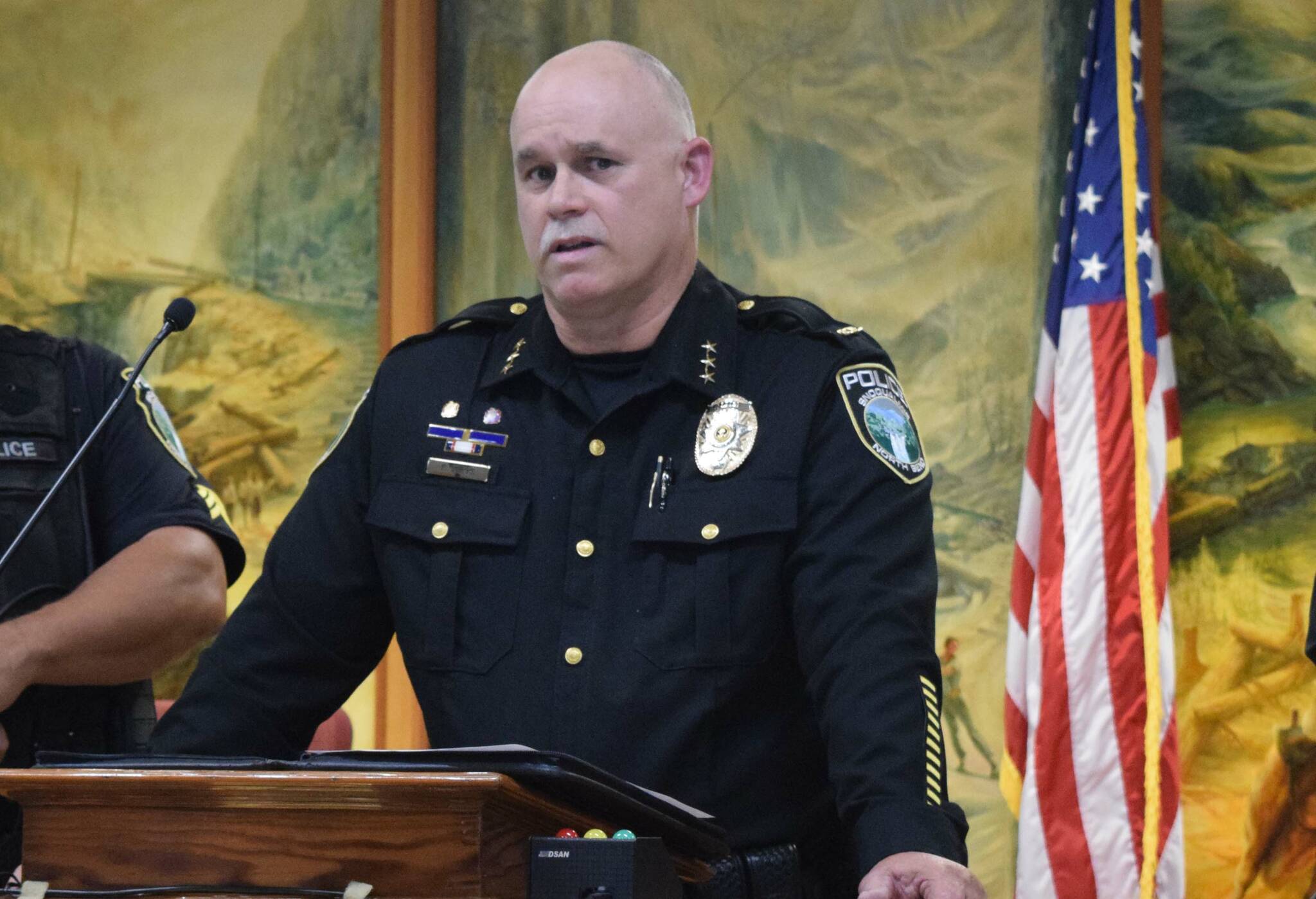In the aftermath of an officer involved shooting, members of the Snoqualmie City Council are once again toying with the idea of equipping body cameras to the city’s officers.
Councilmember Bob Jeans, who chairs the Public Safety Committee, brought the discussion up at a committee meeting on Dec. 6, and asked that the police department and city administration consider the idea.
“I’d like to see us go full force in asking the police and administration, in due course, to come forward with a proposal that would fund worn body cameras,” he said.
Body cameras have been up for discussion among city leaders for several years, but were sparked once again after a Snoqualmie police officer fatally shot a 33-year-old homeless man in North Bend last month, with no camera footage of the incident.
Snoqualmie Police Chief Perry Phipps supported the idea of introducing body cameras, saying they would improve professionalism, accountability and transparency. He said it will also protect officers and the city from frivolous complaints.
“When these [body cameras] came out years ago there was a lot of angst about intrusion,” Phipps said. “I will tell you a majority of law enforcement agencies and officers who wear them are supportive.”
In western Washington: Seattle, Auburn, Federal Way, and Kent police all have body cameras. Redmond police are also beginning to implement a body camera program. The King County Sheriff’s Department, despite expressed support from the former county sheriff, has not adopted a body camera system.
Nationally, there has been an increasing demand for body cameras as an accountability tool since 2014, following the death of Micheal Brown in Ferguson, Missouri.
As of 2016, nearly 60% of local police departments had fully deployed body-worn cameras, according to the U.S. Bureau of Justice Statistics, but research into the effectiveness of body cameras is mixed and remains ongoing.
Phipps, who joined the department in 2017, said when he first started he sent a proposal for body cameras to the city administrator, but it was determined they were not needed at that time.
In September, Phipps tasked one his sergeants to look into body cameras in light of new state legislation requiring officers to record any interrogation of a minor.
As part of that proposal, the department was briefed on two body camera options, a Motorola option that would cost $83,575 over five years or an Axon option that would cost $181,915 over five years. This cost includes data storage and equipment.
However, the biggest cost to the city would be a new full time employee, estimated at $100,000 annaually, who would be needed to manage the server and handle public records requests. Body camera footage falls under the state’s public records law and an employee would be required to redact personally identifying or sensitive information, if requested. Phipps said the process is heavily labor intensive.
Although no one was opposed to the cameras, Mayor Matt Larson had concerns about the cost required to maintain the video system and the amount of labor required to redact videos as the city faces some financial challenges going forward.
“We’re going into a big period of transition and the council is facing some very serious budget challenges,” he said. “I think this could balloon much higher. We do have some prolific public records requests as of late.”
Other councilmembers were more supportive. Councilmember Cara Christensen, a member of the public safety committee and a lawyer, said she supported the cameras and thought it could reduce the cost of litigation and deter lawsuits against the city. Councilmember Peggy Shepard also voiced support.
“For the benefit of officers and residents, having videos of violent situations is in everyone’s best interest,” Shepard wrote in an email to the council. “Not having a video is rolling the dice.”
Jeans and Larson agreed to bring the discussion to the full council, but it is unclear when exactly this will happen. The committee agreed to hold off on the conversation until after the new year, when three new councilmembers and a new mayor will be sworn in.
“I am lucky to be a chief of police that has very few complaints and even less complaints for use of force issues,” Phipps said. “But we are a police department and we do have to use force sometimes.”


